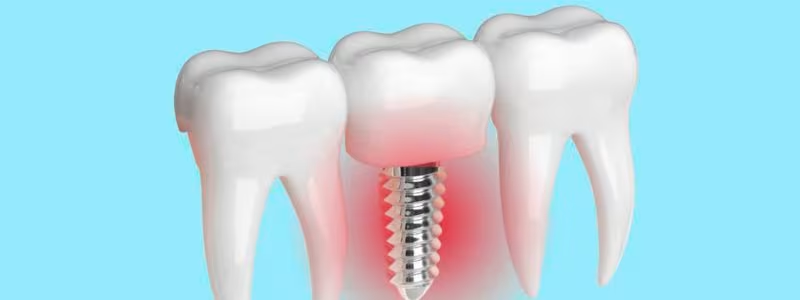Mon - Sun 9 AM - 9 PM
 +91 9000021174
+91 9000021174  [email protected]
[email protected]
5.0
8765 Reviews
Dental implants are a popular and highly effective solution for replacing missing teeth. While they are designed to be long-lasting and durable, maintaining proper hygiene and infection control around implants is crucial. Without it, the surrounding tissues and bone can become inflamed or infected, leading to a condition known as peri-implantitis—a serious complication that can cause implant failure if not addressed promptly.

Peri-implantitis is an inflammatory condition that affects the gum and bone surrounding a dental implant. It is often caused by the accumulation of plaque and bacteria, similar to gum disease around natural teeth. Symptoms include bleeding gums, swelling, pus discharge, bad breath, discomfort around the implant, and in severe cases, bone loss.
Preventing and managing infection around implants requires a comprehensive care strategy that combines professional dental maintenance and at-home oral hygiene.
At The Dental Specialists, we offer specialized maintenance care for patients with dental implants. Our trained hygienists use instruments designed specifically for implants to avoid scratching or damaging their surfaces while thoroughly removing plaque and tartar.
We also monitor the health of the surrounding gums and bone, taking periodic X-rays to detect any early signs of peri-implantitis. In case of infection, we may recommend deep cleaning procedures such as:
Early detection is key to managing infection. If you have a dental implant, be alert for the following symptoms and contact your dentist immediately if they occur:
Even if these signs seem mild, early intervention can prevent more serious complications.
At The Dental Specialists, we take infection control seriously. From sterile techniques during implant placement to customized follow-up care, every step of your treatment is designed with your safety and long-term success in mind. Our clinic uses the latest diagnostic tools and treatment methods to ensure that your implants remain healthy, functional, and comfortable for years to come.
We believe that informed patients make the best decisions for their oral health. During your visits, our team will guide you through the best practices for cleaning around your implant and answer any questions you may have. Whether you’re new to implants or have had them for years, we're here to support your journey every step of the way.
If you have dental implants, regular professional care is essential to keep them in optimal condition. Book an appointment at The Dental Specialists to ensure your implant health is on track. Let us help you protect your investment and maintain a beautiful, lasting smile.
Early signs of an implant infection include red or swollen gums, bleeding while brushing, bad breath, pain around the implant, or pus discharge. In advanced cases, the implant may feel loose. If you experience any of these symptoms, contact your dentist immediately.
Not necessarily. If caught early, infections can be managed without removing the implant. However, if the infection causes significant bone loss or damage, implant removal may be necessary. Regular checkups are essential to detect problems early.
While similar, implants require a bit more care. Use a soft-bristle toothbrush, non-abrasive toothpaste, and consider using interdental brushes or water flossers designed for implants. Your dentist or hygienist can show you the best techniques.
It's recommended to see your dentist every 3 to 6 months, depending on your specific oral health condition. These visits help ensure that any signs of infection or inflammation are identified and treated early.
Don’t wait. Contact your dentist as soon as you notice symptoms. Early treatment can prevent further damage and increase the chances of saving your implant.